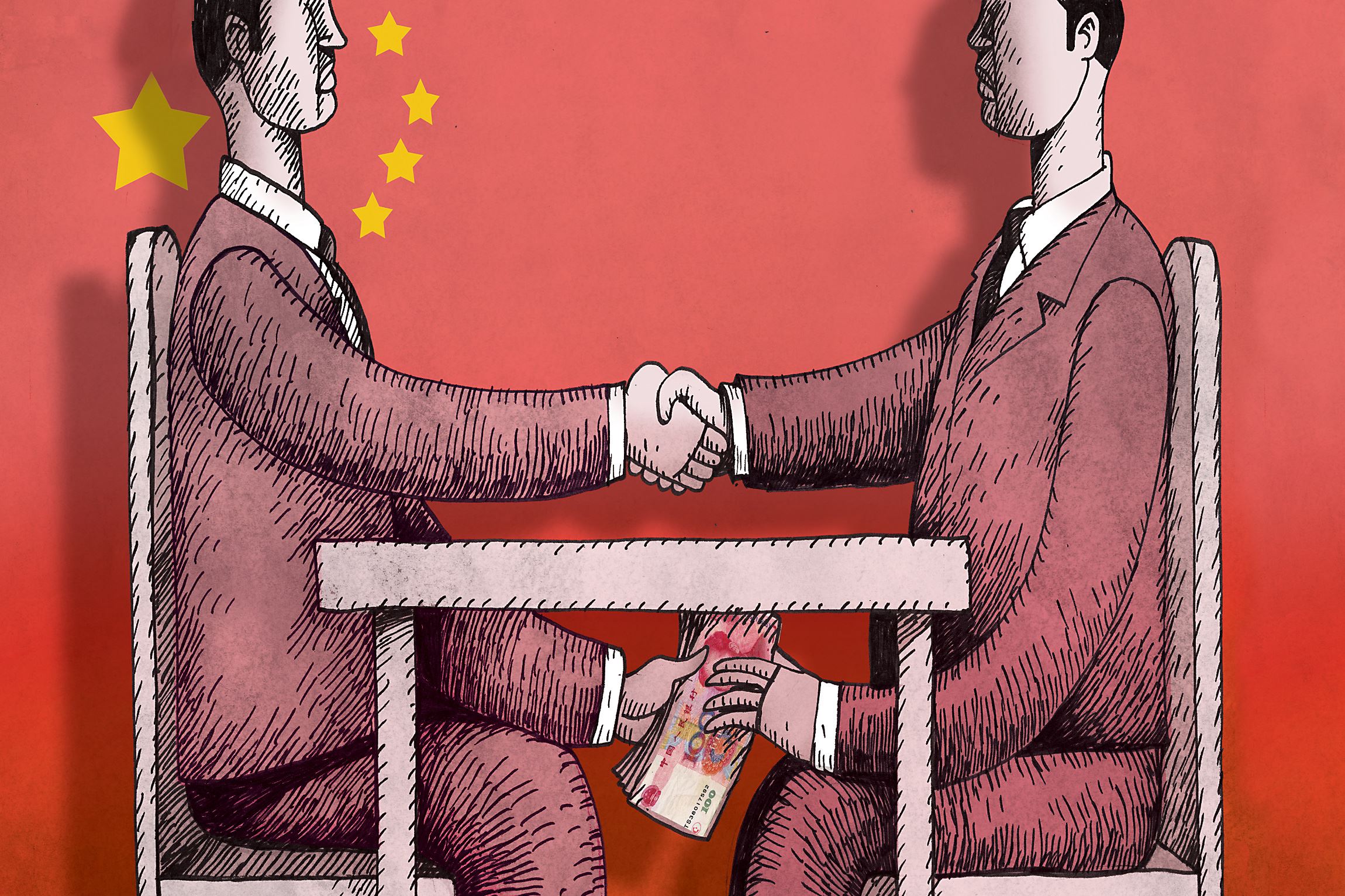Many Ukrainians have a distorted view of corruption in China, which seems to be non-existent there and any bribery of an official is immediately punishable by death.
One of the episodes of such a myth, which is circulated in low-grade social media posts, is a phrase from the TV series Servant of the People, which describes how China eradicated corruption by sewing the upholstery of a chair in an official’s office from the skin of a previous corrupt official. But such stories, which naive Ukrainian social media users like to like, have nothing to do with the reality in China, where the level of corruption is sometimes even higher than in Ukraine.
Daron Acemoglu and James Robinson in their book “The Narrow Corridor. States, Societies, and the Fate of Freedom, for which the authors received the Nobel Prize in 2014, describe the actual situation with corruption in China.
The authors provide specific facts that highlight the staggering corruption of communist China. When Zhao Hua, a Chinese woman, came to register her child for school, she was met by officials from the district education department with a list of how much each family had to pay for “free” education. The meeting with the “not at all corrupt” officials took place not at school, but at a bank, where the woman had to pay 4,800 dollars to have her child enrolled.
It is significant that the government in China is “fighting corruption” and since 2005, the Chinese authorities have banned bribes for school education 5 times (FIVE TIMES). Papers with strict prohibitions are sent from Beijing, but despite any government instructions, money is still taken. This is a very telling fact about the “order” in China.
In one of Beijing’s schools, students receive an extra point for every $4,800 that their parents transfer to the school’s account as charity. Everything in the Chinese education system can be bought: even the first desks at the blackboard and the position of classroom teacher are for sale – and there are buyers for that.
And to get into a Chinese university, you have to open your wallet wider: the bribe for admission to the prestigious Beijing’s Zhenmin University reaches 130 thousand. dollars. This is not some Ukrainian EIT or NMT where high school students cram books with tutors – this is the world’s “most honest” Chinese exam system, which has existed for thousands of years and is legendary. And then the Chinese government deliberately spreads these legends to make the world think better of China.
The Chinese media explicitly state that teachers expect many gifts from parents: designer watches, expensive food, tourist tours, but the best, of course, is a penny with a portrait of the “great breadwinner” Mao. Chinese teachers simply give their parents their bank card number, which they have to replenish throughout the year. In an interview with The New York Times, a Chinese businesswoman said, “If you don’t give the teacher gifts while other parents do, be prepared for your child to receive less attention.”
A naive Ukrainian reader who has just liked posts about the severity of the fight against corruption in China might have thought: And where are the leadership and Xi Jinping looking? And the top leadership of the CCP, headed by Comrade Xi, is looking at their bank card account to check if the next payments from corrupt subordinates have arrived I want them to turn a blind eye to this lawlessness.
China has one of the world’s longest histories of bureaucracy, and thus of pervasive corruption. And all the best things in China go to those who have paid well, while ordinary poor citizens are subject to the law with all the severity of a communist dictatorship.
In the next part of our article on corruption in China, we will talk about court sentences for corruption against Chinese officials who did not share, the amounts for which government positions at any level are sold, and the world’s most modest leaders of the People’s Republic of China, who are 20 times richer than their American counterparts in similar positions.
Author: Valeriy Maydanyuk


Leave a Reply